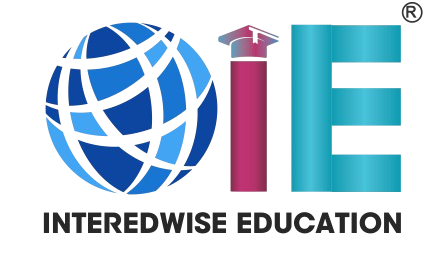MBBS In Germany
MBBS In Germany
About Germany Germany is a Western European country with a landscape of forests, rivers, mountain ranges and North Sea beaches. It has over 2 millennia of history. Berlin, its capital, is home to art and nightlife scenes, the Brandenburg Gate and many sites relating to WWII. Munich is known for its Oktoberfest and beer halls, including the 16th-century Hofbräuhaus. Frankfurt, with its skyscrapers, houses the European Central Bank.
2. Financial Requirements –
One of the most appealing aspects of studying in Germany is the absence of tuition fees in public universities. However, there are still several costs associated with living and studying in Germany:
- Administrative Fees: – Public universities charge a nominal administrative fee each semester, ranging from €150 to €300. This fee often includes a public transportation ticket.
- Living Expenses: – Monthly living costs are estimated at €800 to €1,000, which covers accommodation, food, health insurance, transportation, and other personal expenses.
- Health Insurance: – Health insurance is mandatory for all students in Germany. Public health insurance costs approximately €80 to €100 per month
- Language Courses: – Depending on prior knowledge of German, students might need to invest in language courses, which can cost between €3,000 and €9,000.
- Student Visa and Blocked Account: – To obtain a student visa, Indian students must show proof of sufficient financial resources. This typically involves opening a blocked account with approximately €11,208 (as of 2024) to cover one year of living expenses. Pursuing an MBBS in Germany’s public universities presents a unique blend of high-quality education and financial feasibility. With thorough preparation and commitment, Indian students can leverage this opportunity to build a successful career in medicine. By meeting the eligibility criteria, managing financial requirements, and navigating the application process diligently, students can embark on a rewarding academic journey in one of the world’s most advanced educational landscapes.
1. Eligibility Criteria
To be eligible for an MBBS program in Germany, Indian students must meet the following requirements:
- Educational Qualifications: – Completion of higher secondary education (Class 12) with Physics, Chemistry, Biology, and English. – A minimum of 70-80% aggregate marks in these subjects, depending on the university’s requirements. – NEET (National Eligibility cum Entrance Test) qualification is mandatory for Indian students.
- Language Proficiency: -Proficiency in the German language is essential as the majority of medical programs are taught in German. Students must achieve at least a B2 or C1 level in the Common European Framework of Reference for Languages (CEFR). – TestDAF or DSH (Deutsche Sprachprüfung für den Hochschulzugang) scores are generally required.
- Entrance Exams and Preparatory Courses:– Some universities may require students to pass the TestAS (Test for Academic Studies), which assesses cognitive abilities. – Students may need to enroll in a preparatory course (Studienkolleg) to bridge any academic gaps and improve language proficiency.
3. Challenges to Consider
- Language Courses: – Depending on prior knowledge of German, students might need to invest in language courses, which can cost between €3,000 and €9,000.
- Cultural Adjustment* – Adapting to a new culture and education system can be challenging initially but offers immense personal growth
Conculsion:
Pursuing an MBBS in Germany’s public universities presents a unique blend of high-quality education and financial feasibility. With thorough preparation and commitment, Indian students can leverage this opportunity to build a successful career in medicine. By meeting the eligibility criteria, managing financial requirements, and navigating the application process diligently, students can embark on a rewarding academic journey in one of the world’s most advanced educational landscapes.
Post MBBS
One of the most sought-after options for MBBS graduates is to pursue residency in the USA. This involves:
2. MD / MS in United Kingdom (UK)
For those interested in advancing their medical education in the UK:
- No PLAB/UKMLA Required: Unlike many other countries, the UK offers a pathway for international medical graduates (IMGs) with at least three years of post-MBBS experience to pursue MD or MS degrees without needing to pass the Professional and Linguistic Assessments Board (PLAB) or the upcoming UK Medical Licensing Assessment (UKMLA).
- Experience Requirement: The three years of experience must be post-MBBS, which demonstrates the applicant’s competency and readiness for advanced medical training.
1. Residency in USA
One of the most sought-after options for MBBS graduates is to pursue residency in the USA. This involves:
- USMLE: Graduates must pass the United States Medical Licensing Examination (USMLE), which includes three steps designed to assess a physician's ability to apply knowledge, concepts, and principles crucial for effective patient care.
- Clinical Rotations: We can assist in arranging clinical rotations in US teaching hospitals, which provide hands-on experience and exposure to the US healthcare system.
- Matching Process: Guidance through the National Resident Matching Program (NRMP) is provided, helping graduates secure a residency position in their desired specialty.
3. Master of Public Health (MPH) in USA/UK/Australia
An alternative route that offers flexibility and new opportunities:
- Low Budget Option: Pursuing an MPH is generally more affordable compared to direct medical residencies.
- Work Visa: Completing an MPH can help secure a work visa, providing more time to settle in the country and fulfill necessary formalities for further medical training or employment.
- Pathway to Residency: While not a direct route to residency, an MPH can enhance a graduate’s resume, improve understanding of public health systems, and potentially lead to residency opportunities through networking and gaining relevant experience.
